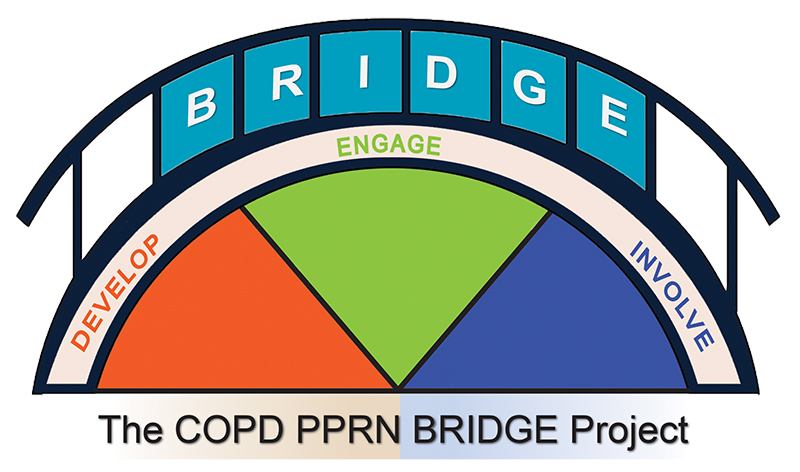Patient/Caregiver Developed COPD Research Agenda
The first ever patient/caregiver prioritized COPD research agenda was created through the COPD Patient-Powered Research Network BRIDGE Project - Bridging the Gap Between Patients/Caregivers and COPD Research.
The COPD Foundation is committed to implementing this agenda and calls on the research community and funders to prioritize these topics outlined by our community.

Patient/Caregiver Developed COPD Research Agenda:
Stem: Medical research about benefitting individuals with COPD by:
- Reversing COPD through new discoveries that treat the lung (other than stem-cell or transplant)
- Improving the drugs that relieve shortness of breath or treat flares-ups
- Curing COPD, for example, with stem cells or lung regeneration
- Reducing symptoms like cough, pain, and shortness of breath
- Improving insurance and drug coverage to support access to drugs and medical devices
- Improving medical equipment such as oxygen delivery systems or CPAP machines and access to these therapies
- Improving physical functioning and maintaining mobility or independence
- Improving access to pulmonary rehabilitation for guided exercise plans
- Reducing fear, stress, anxiety, or the psychological impact of COPD
- Treating COPD along with managing other diseases patients may have, such as hypertension, heart disease, diabetes, asthma, or sleep apnea
- Replacing the diseased lung through improved or easier lung transplant
- Personalizing treatments with genetic or specific information about individual patients
- Understanding how to improve the care of patients in the home, including how to support COPD patients without a caregiver or someone to help them
- Using diet, vitamins, or nutrition to reduce the effects of COPD
- Using holistic therapies like yoga, complementary, alternative, or other non-traditional approaches to treat or reduce the effects of COPD
- Understanding genetic markers or other factors that can prevent COPD or lead to earlier diagnosis
- Improving adherence to therapies and medical equipment use such as oxygen delivery systems or CPAP machines
- Developing effective approaches to improve patient-provider communication
- Including persons with COPD in more severe stages or other under-represented groups like minorities to improve their care
- Understanding how governmental regulation or health policy impacts the lives of those with COPD
- Developing effective education interventions to support patients and their care partners in dealing with COPD
- Understanding how jobs, environment, and pollution cause or affect COPD
- Understanding how best to prevent people from smoking or help them to stop smoking
- Understanding how to improve support of families and friends of patients with COPD
Patient/Caregiver Developed Research Agenda Related to Mental Health in the Context of COPD and COVID-19:
This project was funded through a Patient-Centered Outcomes Research Institute® (PCORI®) Eugene Washington PCORI Engagement Award (EA-PPRN-00035).
The statements presented in this work are solely the responsibility of the authors and do not necessarily represent the views of the Patient-Centered Outcomes Research Institute® (PCORI@reg;), its Board of Governors, or Methodology Committee.